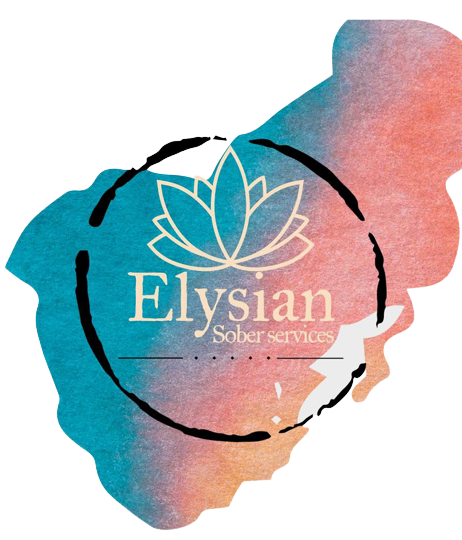No matter where you are on your sober journey, one of the common notions you’ll often hear is how important it is to have a strong support system. And there’s a good reason this is such a popular statement! A strong support system is an incredibly valuable asset when you’re struggling to get or stay sober, as well as maintaining your sobriety once you become sober.
Today, we’re going to tell you more about what makes this kind of support so important, as well as how to find one for yourself.
What is a Support System?
A support system can be made up of any number of people in your life who offer you emotional, mental, or practical support. This support can come in many different forms: a friend who listens to you when you need to talk, a family member who helps out with childcare so you can go to therapy, a sober companion or coach, or a sponsor in Alcoholics Anonymous (AA) who offers guidance and accountability. Other types of support systems include professional support, like counselors or therapists.
Why is a Support System Important for Sobriety?
There are many reasons why having a support system is so important when you’re trying to get or stay sober. We’ll get to some of those in a moment. But first, let’s look at what some of the research says about it.
What the Research Says
According to one 2012 study published in the journal Alcoholism Treatment Quarterly, people who have a strong support system are more likely to stay sober after treatment than those who don’t. The study found that participants who had social support were less likely to relapse and more likely to remain abstinent for longer periods of time.
Now, let’s look at some of the reasons your support system is an integral part of your success.
Positive influence
A support system can be one of the greatest sources of positive influence for those working on their sobriety. Drugs and alcohol have been a negative influence in addicts’ lives, leading them down a dark path. A support system can provide them with the positive influence they need to stay on the right track.
Motivation
Support systems can also be a great source of motivation. They can help you stay focused on your goals and remind you why you’re working so hard to recover. It’s easy to lose sight of your goals when you’re struggling with addiction, but having a support system can help you stay motivated and keep moving forward.
Providing you with distractions
Boredom often leads to bad decisions, or at least the temptation to make them. Your support system can also be a great source of distractions when you need it most. Particularly during the early stages of recovery, it can be easy to focus on negative thoughts and feelings, as well as the urge to abuse substances. The people in your support system can provide you with fun activities and positive social interactions that can break up the monotony of everyday life and give you something to look forward to.
Social aspects
Simply put, addiction is isolating. But when you surround yourself with the right people, you don’t have to go it entirely alone. Even if they aren’t experiencing the same things you are, they can be there to listen when you need to talk or simply provide you with a shoulder to lean on.
Practicality
Additionally, a support system can offer practical assistance, like helping to pay for therapy or providing transportation to meetings.
Accountability
Your “human safety net” can also help keep you accountable while you maintain your sobriety. This means that they will be there to offer encouragement when you’re struggling, and also hold you accountable if you start to slip up.
Companionship and love
But perhaps most importantly, a support system offers companionship and love – two things that are helpful for anyone in recovery.
Important Qualities in a Support System
When you’re looking for a support system, it’s important to find people who have qualities that will support your sobriety, rather than enabling negative behaviors.
Here are some things to look for:
- People who support your decisions regarding sobriety.
- People who won’t enable your addiction in any way.
- Positive role models who can help motivate you on your sober journey.
- People who genuinely want the best for you.
- People with similar interests and goals as you.
How to Find a Support System
If you don’t have a support system in place, it can be difficult to know where to start.
Here are a few tips for finding the support you need:
- Reach out to friends and family members who have been supportive in the past.
- Attend support group meetings like AA or Narcotics Anonymous (NA).
- Talk to your doctor or therapist. They can often provide referrals to support groups or other resources.
- Check out online forums and social media groups. These can be anonymous, which can be helpful if you’re not ready to talk about your recovery with people you know in real life.
- Look for support groups in your community. There are many different types of support groups, so you may need to try a few before finding one that’s a good fit.
Reconsider Your Current Support System
While you’re in the process of creating a new support system for yourself, it’s also a good time to reflect on the people you currently turn to for support. Are they the healthiest, best option for you? Do they encourage sobriety or enable addiction? These are a few of the things to take into account while you’re deciding who should be in your circle.
And remember, your sobriety is the most important thing. This means it’s more important than hurting someone’s feelings by ceasing to spend time with them if you deem they’re not a positive influence in your life. These decisions can be hard to make, but they’re ultimately ones that will save your life.
How to Support Someone in Recovery
Now, let’s turn things around and say you’re on the opposite side, being the one supporting someone in their sobriety rather than being supported.
Here are some tips on how to support someone in recovery:
- Educate yourself on addiction and recovery. The more you know, the better equipped you’ll be to support your loved one.
- Be supportive, but not enabling. It’s important to encourage your loved one in their efforts to stay sober, but it’s just as important not to enable their addiction by enabling their destructive behavior.
- Encourage healthy behaviors and activities. Sober living is all about making positive changes in your life, so help your loved one by encouraging them to pursue healthy activities like exercise, eating well, and attending support meetings.
- Be positive. Recovery is a difficult journey, but it’s also full of hope and possibility. Be supportive and positive, even when things get tough.
- Remember that recovery is an ongoing process. Addiction is a chronic disease, and relapse is always a possibility. Don’t give up on your loved one – support them through the good times and bad.
Other Sober Services
In addition to finding a strong support system, there are a number of other resources to help you get and stay sober. For example, sober services like a sober companion or coach can provide support when you’re struggling to stay on track. These professionals are specifically trained to help people in recovery.
This includes everything from providing support during difficult times to accompanying you to appointments and social events. Additionally, a sober companion can even live in your home while you’re working on your sobriety, providing support and accountability around the clock.
At Elysian Sober Services, our offerings include sober companions, sober coaches, and sober transportation. For more information about how to find a support system or other sober services, contact Elysian Sober Services in Florida today.





